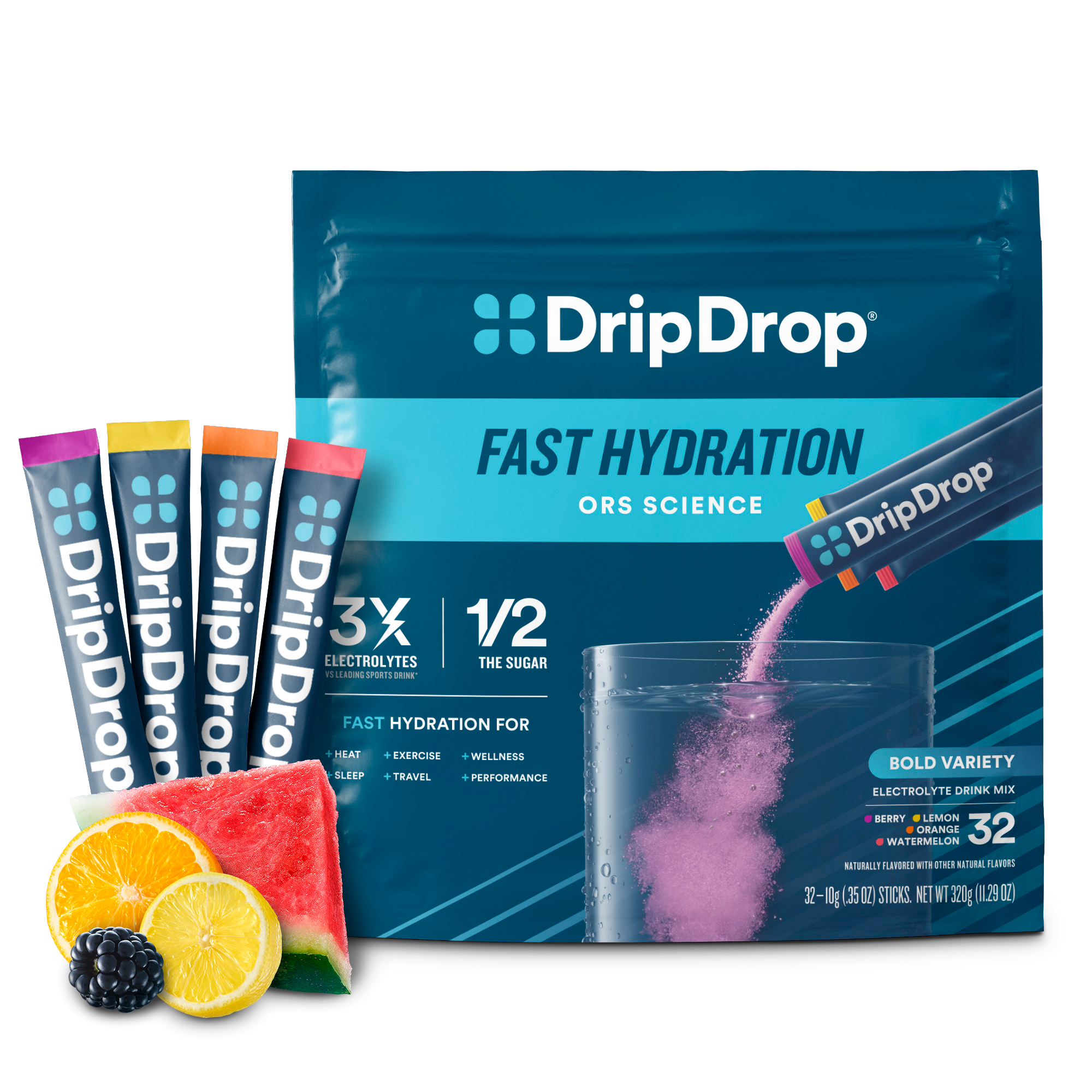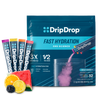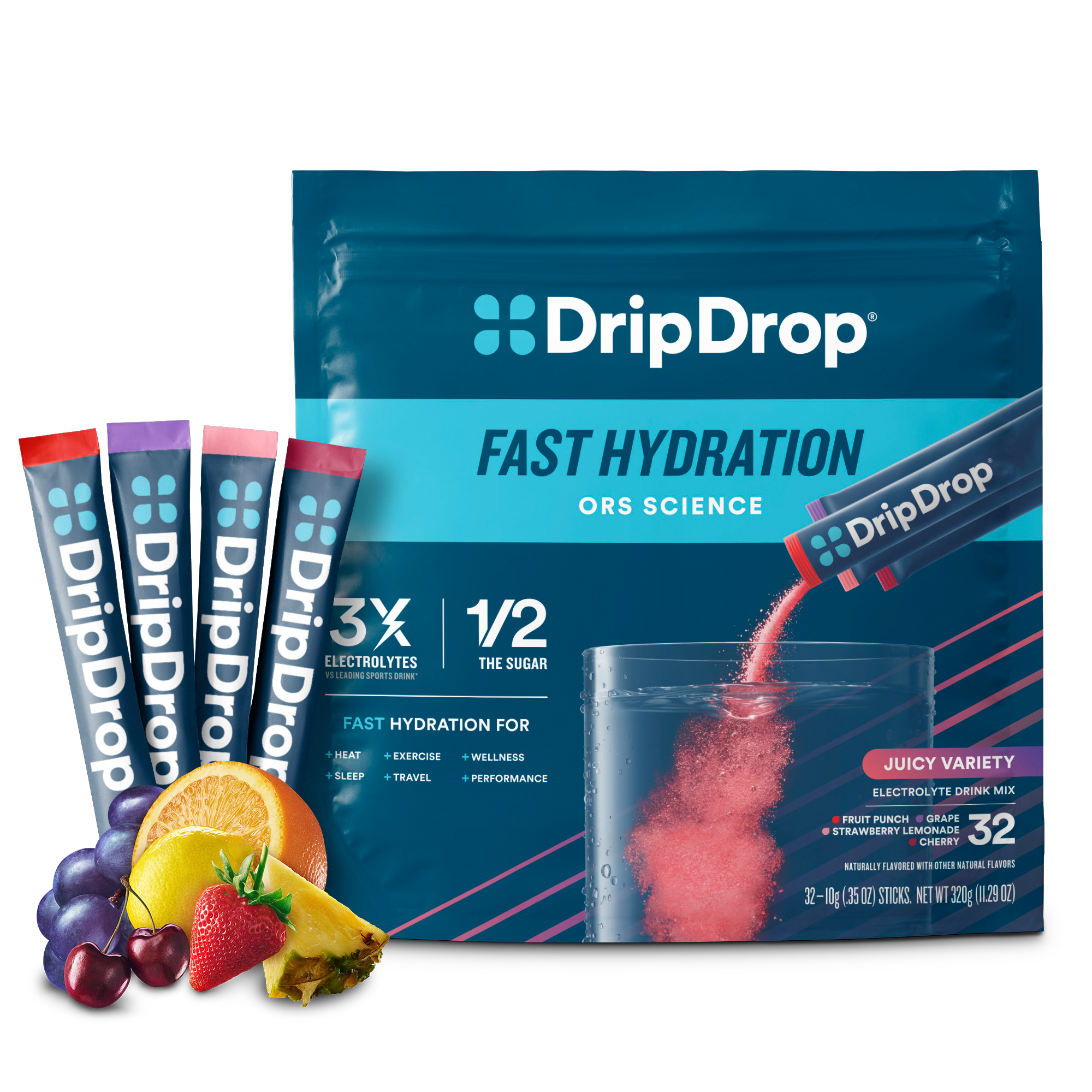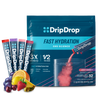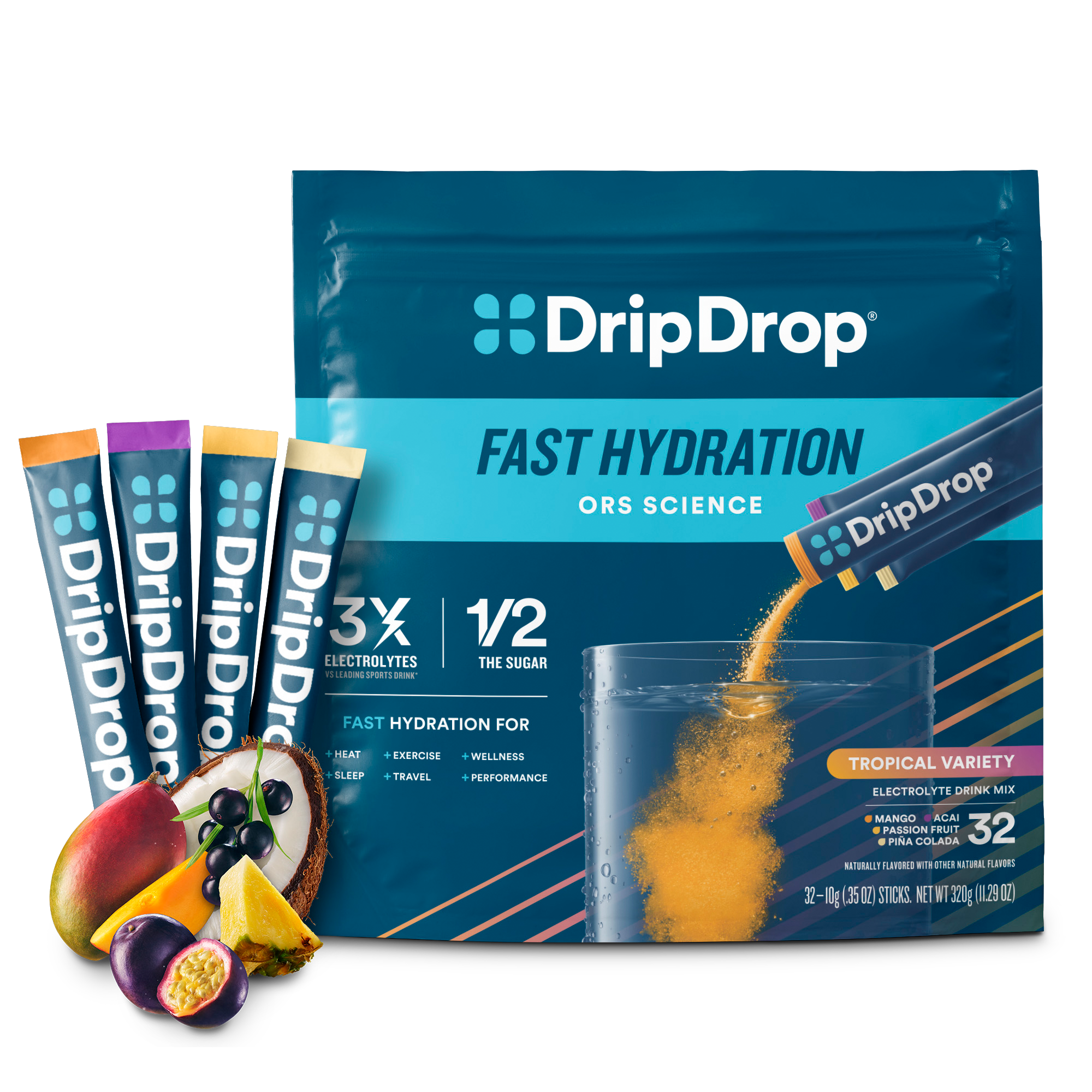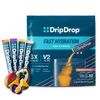The secret to healthy aging, they say, is to eat your greens and stay active. However, hydration and getting enough fluids are typically overlooked when it comes to staying healthy, often overshadowed by healthy eating tips.
For a start, water accounts for almost two-thirds of your body weight. Not only that, it helps your body carry out essential functions: transport nutrients into the cells and get waste out of the body, keep your body temperature within normal limits, lubricate your joints, protect your delicate organs, and many more.
Adequate hydration, both in children and adults, is even more critical when you’re running a fever, experiencing diarrhea, or if you’ve been more active physically lately. When you’re not drinking enough water and not getting enough fluids in your day to day, dehydration can set in.
In this article, you’ll discover the possible side effects of not drinking enough water. You’ll also learn how to recognize dehydration symptoms how to manage mild to moderate dehydration.
How Dehydration Sets In
Not drinking enough water can result in dehydration, a condition when you're losing more fluids than you're taking in.
Every day, you lose up to a little less than a liter through water evaporating from your skin and your lungs as you exhale. This is often referred to as insensible fluid loss.
You also lose water through urinating, profuse sweating, and bowel movements. Vigorous activity, hot and humid weather, diarrhea, fever, and vomiting can also dramatically increase water loss.
Here's the most important part: Dehydration occurs because you're not just losing water. You are also losing fluids and precious electrolytes. Why precious?
Electrolytes — like sodium, potassium, and calcium — are electrically charged minerals in your bodily fluids that help maintain homeostasis. Think of homeostasis as a condition where the human body is in a state of balance. These electrolytes help keep your body in great shape, such as supporting muscle, nerve, and heart functions.
Now that you understand fluid and electrolyte loss, you'll realize that drinking water alone isn't enough to help you rehydrate.
Your body needs the perfect balance of sodium and glucose to help absorption. With the precisely balanced ratio, you can replenish vital electrolytes and fluids to relieve dehydration quickly.
Potential Side Effects of Not Drinking Enough Water
With dehydration and electrolyte loss as possible consequences of not drinking enough water, you may notice the following side effects:
1. Stubborn Headaches
When you’re dehydrated from not drinking enough water, you might experience dehydration headaches — ranging from mild head pain to a full-blown migraine.
While the exact cause behind dehydration headaches is still unclear, research shows your brain may temporarily contract, giving way to the theory that the contractions can put pressure on the pain-sensitive layers of tissue surrounding your brain. Furthermore, the same research revealed that about 2 cups of water relieved the headache for 22 subjects (out of 34 subjects ) within a half-hour, while 11 subjects felt total relief one to three hours later after consuming 3 cups of water.
2. Persistent Fatigue, Mood Changes, and Lack of Focus
Low energy levels, brain fog, and lack of focus are another set of possible side effects of not drinking enough water and low fluid intake. As a result, your productivity and relationships may suffer.
A study on 20 healthy women who underwent fluid deprivation for 24 hours and its effect on their moods revealed that confusion, fatigue, and changes in alertness and vigor were evident following mild dehydration. Interestingly, only confusion and alertness (not vigor and fatigue) were improved immediately after water intake without limits.
Another study conducted by researchers at the University of Connecticut found that mildly dehydrated subjects had significant reductions in their energy levels and the ability to think clearly. They also reported low moods alongside cranky feelings.
3. Sluggish Digestion
If you're sufficiently hydrated, water receptors in your colon pull water from your bloodstream to your intestines to bulk up and soften stools.
As a result, you are likely to experience sluggish digestion and possibly constipation if you're dehydrated. Chronic constipation in adults appears to result from low water intake, alongside other factors. You may also experience side effects such as cramps and stomach pain.
4. Dry Skin
Suffering from dry, dull skin that doesn’t respond well to using moisturizers and lotion? You’re probably suffering from dehydrated skin as a result of not drinking enough water.
One way to tell if you have dry skin due to dehydration is to watch for other signs of dehydration like dark-colored urine, extreme thirst, dizziness, dry eyes, dry mouth, and headache.
You can’t tackle dehydration fast just by drinking more water. You need a precise balance of glucose, sodium, and other electrolytes to hydrate fast.
5. Negative Impact on Physical and Mental Performance
If you don't rehydrate, your physical and mental performance is likely to be affected.
For example, fluid loss that's equal to 1-2% of your body mass (for example, a 1.4 kg loss in a 70 kg person) is enough to cause a noticeable reduction in your cognitive performance.
Furthermore, dehydration can also impact physical performance and put you at higher risk of injury. A study at the Chicago State University found fluid loss that's equal to 2.9% of your body mass due to dehydration decreases the ability to generate upper and lower body strength. Based on this finding, coaches and athletes are encouraged to watch out for dehydration, which can also increase an athlete's chance of getting injured.
6. Increased Risk of Kidney Stone Formation, Kidney Disease, and Urinary Tract Infections
If you're not drinking enough water, you are also increasing your risk of developing kidney stones. These stones form quickly because there's less water and fluids to stop stone-forming crystals from forming together.
Meanwhile, prolonged bouts of dehydration can also increase one's chances of developing urinary tract infections. For this reason, individuals with recurrent UTIs (urinary tract infections) are encouraged to drink more fluids.
Finally, it's worth noting that chronic heat stress and dehydration are considered an essential component of the epidemic of chronic kidney disease among sugarcane workers in Central America.
How to Recognize Dehydration
If you’re not drinking enough water, chances are you’re dehydrated. This is especially true if you’re working outdoors, physically active, suffering from chronic health conditions, or taking diuretics.
Watch out for the following signs of dehydration:
Headaches
Parched mouth
Dry skin
Extreme thirst
Dizziness
Rapid heartbeat
Fatigue
Muscle cramps
Increased heart rate
Meanwhile, severe dehydration may involve sunken eyes, confusion, and even coma. If you recognize these signs, seek medical advice right away.
Once you recognize the signs of mild to moderate dehydration, take action right away.
When we become dehydrated, we need to replace lost fluids and electrolytes into our bloodstream rapidly — therefore, drinking plenty of water is not enough at that point, and IV therapy may not be practical.
In the 1960s, medical scientists discovered that combining the right amount of sodium electrolytes (about three times as much as you’d find in a sports drink) and just a little glucose (sugar; about one-half as much as you’d find in a sports drink) a mechanism called the sodium-glucose cotransport system was activated, opening the intestinal wall and effectively “pulling” needed fluids and electrolytes into the bloodstream. This solution, called an ORS, was used to treat and prevent dehydration and saved millions of lives globally.
Not Drinking Enough Water? Remedy Dehydration With DripDrop
DripDrop is an excellent solution for those times when you’re not drinking enough water and need an effective rehydration solution. It replaces essential electrolytes and minerals, has low osmolarity to enable rapid absorption and retention, and tastes great without using too much sugar. All you need to do is to quickly add a packet of DripDrop into a glass of water or your water bottle.
Get started with our most popular multi-flavor pouch for dehydration relief fast. Or, learn more about how you can save up to 25% on every purchase when you subscribe.



